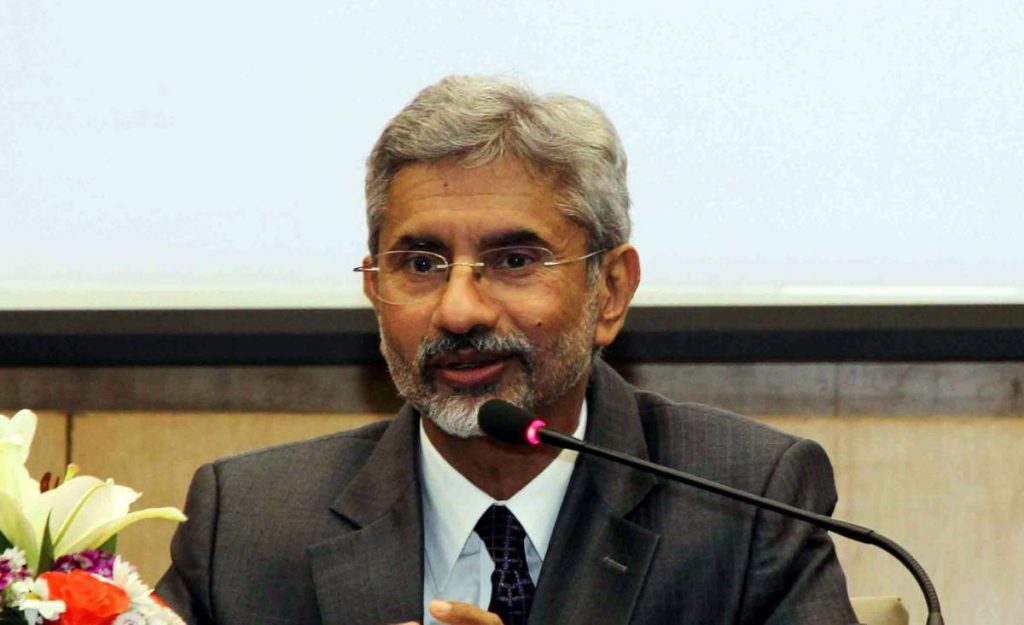Jean-Yves Le Drian and S Jaishankar agree to deepen strategic partnership, “based on a relationship of political trust between two great sovereign nations of the Indo-Pacific”, reports Asian Lite News
France’s foreign affairs minister has agreed with his Indian counterpart to work on a programme to promote “a truly multilateral international order”, the French foreign ministry said.
Jean-Yves Le Drian and Subrahmanyam Jaishankar also agreed during a call to deepen their strategic partnership, “based on a relationship of political trust between two great sovereign nations of the Indo-Pacific”, the ministry said.
The two ministers agreed to meet in New York next week, on the sidelines of the United Nations General Assembly, to work “on a common programme of concrete actions to defend together a truly multilateral international order”, it added.
For his part, Jaishankar said in a Twitter post they discussed “developments in the Indo-Pacific and Afghanistan”.
France has pushed for several years for a European strategy for boosting economic, political and defence ties in the region stretching from India and China to Japan and New Zealand. The European Union unveiled this week its plan for the Indo-Pacific.
The phone call came a day after the French government recalled its ambassadors to the United States and Australia after Canberra ditched a multibillion-dollar order for French submarines in favour of a partnership with Washington and London in the Indo-Pacific region.
Calling the cancellation “unacceptable behaviour”, Le Drian said in a statement on Friday the decision to recall the envoys, on request from President Emmanuel Macron, “is justified by the exceptional seriousness of the announcements” made by Australia and the United States.
A White House official said on Friday that the US regrets France’s decision and will continue to be engaged in the coming days to resolve differences between the two countries.
Australia said on Saturday it also regrets France’s decision, adding that it values its relationship with France and will keep engaging with Paris on many other issues.
“Discussed recent developments in the Indo-Pacific and Afghanistan with my friend FM @JY_LeDrian. Looking forward to our New York meeting,” Jaishankar tweeted.

This comes just a day after France summoned its diplomats from the United States and Australia in response to the controversy surrounding the submarine agreement. The ambassadors were summoned for “consultations,” according to Foreign Minister Jean-Yves Le Drian.
According to Euronews, he also stated that Australia’s decision to quit the submarine development agreement with Paris and the launch of new cooperation with the United States are examples of undesirable behaviour between allies and partners.
On Friday, September 17, France slammed the United Kingdom, the United States, and Australia for forming a new Indo-Pacific security alliance, accusing the allies of a “stab in the back,” and recalling their ambassadors to the US and Australia.
A day earlier, Washington, Canberra, and London announced the “AUKUS” collaboration, with Australia cancelling a $40 billion French-designed submarine deal with Paris in exchange for advanced US nuclear-powered submarines, resulting in a diplomatic spat between the three countries.

However, India chose not to comment on the establishment of a historic security partnership between the US, the UK, and Australia, which will allow for deeper Indo-Pacific cooperation and increased pooling of defence capabilities within the trilateral alliance.
For the first time, the US and the UK will be able to offer Australia the technology to create nuclear-powered submarines, as part of a strategy to confront China in the Indo-Pacific.
However, China’s foreign ministry spokesperson Zhao Lijian stated shortly after the three countries announced the pact on September 16 that AUKUS undermines regional stability and feeds an arms race. According to Zhao, the defence alliance jeopardises regional peace and stability, accelerates the arms race, and jeopardises international non-proliferation efforts.
Meanwhile, on September 25, QUAD leaders Indian Prime Minister Narendra Modi, Japanese Prime Minister Yoshihide Suga, US President Joe Biden, and Australian Prime Minister Scott Morrison will meet in the White House for the first in-person engagement.
ALSO READ-Dubai Set To Boost Trade Ties With France
READ MORE-Cops injured during protests against health passes in France

Leave a Reply